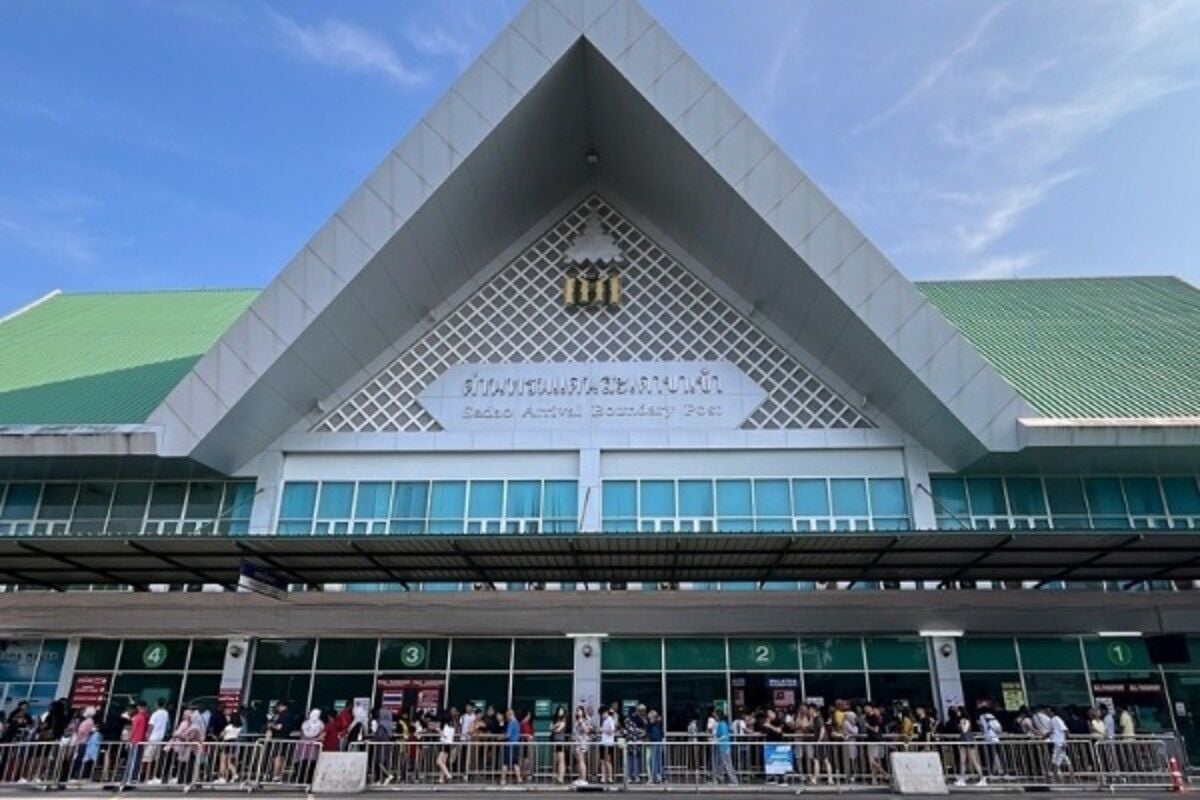Thailand extends TM6 form suspension to boost tourism

Thailand has extended the suspension of its TM6 immigration forms until April 30 next year, a move that promises to ease cross-border tourism while a new electronic travel authorisation (ETA) system is being developed. Officials say the ETA could also streamline the collection of tourism fees.
Tourism and Sports Minister Sorawong Thienthong revealed that the Cabinet approved the decision, which applies to 16 land and sea entry points. The suspension, which began on April 15, aims to reduce congestion, improve immigration services, and boost economic growth through tourism, said Songchai Mungprasithichai, president of the Songkhla Tourism Promotion Association.
“This will increase daily arrivals and make crossing borders smoother.”
He expects Songkhla province to see a 50% surge in Malaysian tourists, particularly during holiday periods, with up to 30,000 visitors flocking to Hat Yai and Songkhla per day.
The ETA system, which will replace the TM6 form, allows visa-free tourists from 93 countries to register online. Travellers will receive a QR code to breeze through automated immigration gates, enhancing convenience at major checkpoints like Aranyaprathet, Chiang Saen, and Padang Besar.
However, Songchai warned that tourism in Thailand’s Deep South risks losing steam without new attractions.
“Malaysian tourists might stay for a few days, then head back.”
He also urged the tourism ministry to ensure effective tourism fee collection at borders and address concerns over the tourism fund’s management, reported Bangkok Post.
In related news, Thailand is tightening its borders with a new Electronic Travel Authorisation (ETA) system, set to launch between December this year and June 2025. This system will be mandatory for all visa-exempt foreigners entering the country by air, land, or sea.
Though not technically a visa, the ETA will act as a computerised security check, similar to the ETIAS programme for Schengen countries. It’s designed to enhance security, curb illegal migration, and monitor health risks.
In other news, getting a Thai visa in Southeast Asia is about to become a high-tech affair. Starting this week, several Thai consulates across the region will be switching entirely to online e-visa applications, leaving traditional walk-ins a thing of the past.
Latest Thailand News
Follow The Thaiger on Google News:


























